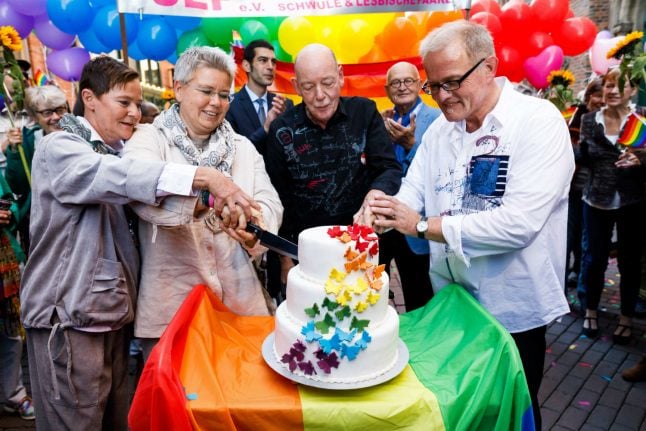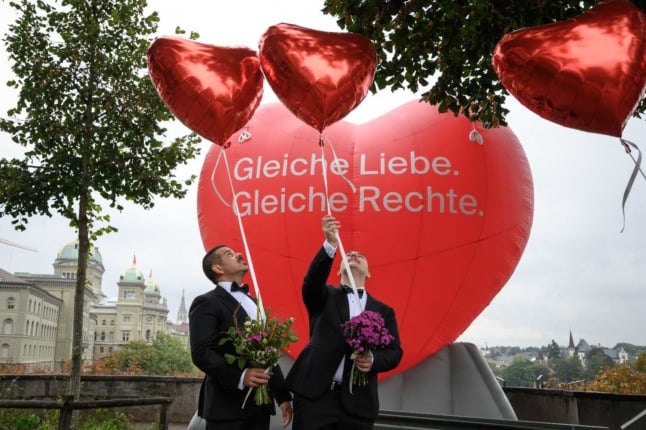Thousands of gay and lesbian couples have got married in Germany in the past year, after decades of waiting. More than 10,000 same-sex couples have tied the knot since the change in the law on October 1st, 2017, according to a survey by the DPA. Detailed figures for the whole of Germany have not yet been collected by the Federal Statistical Office.
“Marriage for all was an important step for a fair and open Germany,” said the speaker of the Lesbian and Gay Society (LSVD), Markus Ulrich, of the one-year anniversary. But the LSVD still sees problems in the recognition of different family set-ups, for example amongst lesbian couples where one partner has a child.
SEE ALSO: Germany celebrates first gay marriages
The demand for the so-called “marriage for all” was especially high in big cities. In Berlin alone, a total of 1537 same-sex couples were married in eight out of the twelve districts. No data was available from the capital’s other districts.
Munich’s registry offices reported 833 same-sex marriages. However, the authorities in the Bavarian state capital had assumed there would be a much higher demand prior to the change in the law.
Cologne is especially popular amongst gay couples: 1056 gay and lesbian couples said “I do” there, which constituted 18% of all marriages. The figure was similarly high in Leipzig at 19%. Eight hundred same-sex couples got hitched; In Stuttgart the figure stood at 708, and in Frankfurt am Main at 673.
While considerably more male same-sex couples tied the knot in big cities, there were more lesbian marriages in many smaller towns. Around the country, more than two-thirds of all same-sex couples converted long-term civil partnerships into marriages. In Bremen, it was three-quarters.
Some municipalities forwent collecting statistics on same-sex marriage.
“Marriage for all means marriage for all – that information was not collected separately by us,” explained Carsten Müller, the spokesperson for small community of Bad Mergentheim in Baden-Württemburg.
SEE ALSO: Berlin Pride's ceaseless co-founder continues the fight for LGBT equality
Many couples wished to get married on the same day as their civil partnership was registered, a spokesperson from the town of Rostock explained. Additionally, weddings in special places such as Cape Arkona on the island of Rügen, or the island of Sylt in the North Sea in Schleswig-Holstein were very popular.
The rush to the registry offices was particularly high in the first months after the change of law. In some regions, however, the effects failed to ever really materialize. According to a public statement, only nine gay couples married in the city of Cottbus in Brandenburg, which has a population of 100,000.
Generally, gay marriages in many smaller towns made up less than ten percent of all marriages. In Buxtehude, Uelzen oder Cloppenburg, Lower-Saxony, only two to five percent of all marriages were between same-sex couples.



 Please whitelist us to continue reading.
Please whitelist us to continue reading.
Member comments